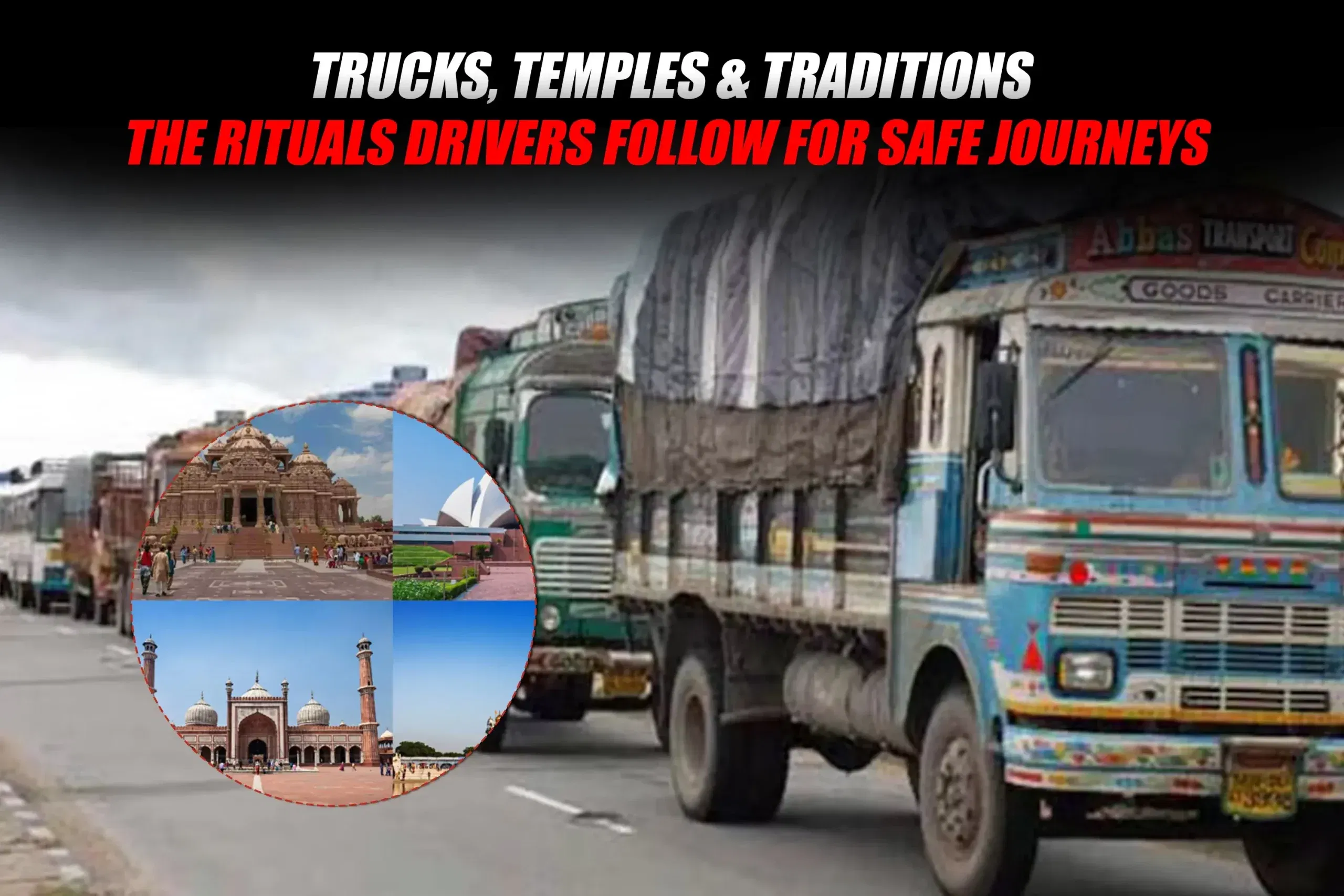Across India’s highways and rural roads, truck drivers transport more than just goods. They carry habits, traditions, and mental routines. Practices that are passed down generations. These aren’t acts of superstition but are thoughtful rituals that help drivers feel prepared, alert, and mentally ready before long journeys.
Some Practices that Drivers Follow
1. Visiting Temples Before Departure
Most drivers would stop at a roadside temple before embarking on a trip. The visit is short. They recite a quick prayer, make an offering, or perform a symbolic act such as touching the temple steps. These few seconds provide a feeling of preparedness, security and concentration before driving.
2. Decorating the Truck to Protect
Indian trucks are often decorated with brightly colored patterns, stickers and motifs but these ornamentations have a lot of significance. Some trucks have lemon or chili charms, mirror decorations, or talismans thought to protect the vehicle from negative vibes or distractions.
3. Wrapping a Sacred Cloth or Talisman
A saffron or red cloth draped over the mirror, bumper, front grill or the steering is very commonly seen. These are considered blessings, collected from temples or passed down by a family member. It serves as a subtle reminder to the driver that someone's wishes are accompanying them on the road.
4. Starting the Engine with a Small Ritual
Some drivers begin their day with a small ceremony prior to turning the ignition. It might be a rapid tap on the steering wheel, a moment of silence, or a brief honk. This ritual, though insignificant, signals the changeover from the state of rest to responsibility of driving.
Why These Rituals Are Valued
Driving trucks in India takes more than physical strength. It takes immense mental preparation, emotional regulation, and the power to handle fatigue, road pressure, and loneliness. These traditions, cultural and experiential, serve as cognitive reminders. They enable drivers to shift into work mode, providing order to a day that can extend unpredictably over hundreds of kilometers. When each trip is unique and each path that might contain uncertainty, small rituals are what bring consistency.
Most drivers absorb these traditions from observing veteran drivers including relatives, instructors or other fellow drivers. The information isn't necessarily documented. It's conveyed through practice and through the unspoken repetition of everyday actions. And although some drivers do change their rituals along the way, the essence stays the same.
These rituals are not out of date. They change with the driver. Some use different symbols while others maintain only one or two of the most important traditions. But in all instances, the reason is the same- to drive sensibly, with presence of mind.
Conclusion
In an occupation in which deadlines are crucial and road conditions can change in seconds, preparation is not just limited to the mechanical side, it is also vastly psychological. These rituals provide drivers with a sense of comfort and confidence.
Rituals give shape to routines. For Indian truck drivers, these acts offer reassurance before long days and longer nights. They are not just about superstition, they are about readiness. A sacred thread tied to the mirror, a moment of silence before ignition, a quick prayer outside a temple—all are ways of saying, “I’m prepared.”
They appear small on the surface but for those individuals who play a role in running India's transport economy, these rituals make the road a little more familiar and the journey a little easier.
91Trucks is the place to go for all things commercial vehicles. If you need a new or used truck for your business, check it out. We have everything you need, from detailed reviews and exact specs to the best deals that fit your business needs. Stay up to date on the latest news, analysis, and stories from the business.
Follow us on Facebook, Instagram, and LinkedIn, and subscribe to our YouTube channel to get the latest news and videos from experts!
Read More
Web Stories
Latest Trucks News
Categories
91trucks is a rapidly growing digital platform that offers the latest updates and comprehensive information about the commercial vehicle industry.
